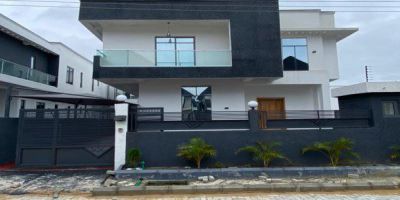How warm is the housing market in Nigeria

The housing market in Nigeria is complex and faces a number of significant challenges, Nigeria's housing market has experienced significant changes recently, characterized by rising property prices and rents, Homers.ng x-ray some economic factors that have influenced houses for sale such as inflation and increased construction costs.
- High Demand, Low Supply
- Property Market Prices
- Property Market Dynamics
- Achieving Affordable Housing
- Conclusion
High Demand, Low Supply
Nigeria has a rapidly growing population and urbanization rate, leading to immense demand for housing. However, the supply of adequate and affordable housing significantly lags behind, creating a substantial housing deficit . Estimates of the deficit vary, but it is generally believed to be in the millions of units.
A major hurdle is the unaffordability of housing for a large segment of the population. Building materials, labor, and land acquisition are expensive. Mortgage rates are often high, and the requirements can be difficult for many Nigerians to meet. The mortgage penetration rate in Nigeria is very low compared to developed countries.
Property Market Prices: Low Supply
In major cities, the cost of homes has surged by up to 25%, exacerbating affordability challenges for buyers. For instance, a two-bedroom apartment in Lekki, Lagos, previously priced at ₦115 million, now sells for ₦125 million. Similarly, a four-bedroom bungalow in Ojokoro, Ifako-Ijaiye council, has increased from ₦45 million to ₦60 million
Rents have also escalated, with increases of over 50% in some urban centers. In Lagos, a mini-flat that rented for ₦500,000 in mid-2023 now costs ₦650,000 annually. A three-bedroom flat has risen from ₦800,000 to ₦1.5 million per year. In Abuja, a three-bedroom terrace house previously at ₦5 million now rents for ₦8 million and above
Property Market Dynamics
Despite these price hikes, home sales have slowed, particularly in the low-income segment, due to diminished purchasing power among Nigerians. Developers and landlords continue to adjust prices in response to economic realities, including the rising costs of building materials and construction.
Experts remain optimistic about the housing market's prospects. They anticipate that demand will remain strong, with a steady increase in property values. Factors such as rapid urbanization, population growth, government spending, and foreign investment are expected to drive this growth. Additionally, technological advancements like virtual reality property tours and AI-driven market analysis tools are poised to make the buying and selling process more efficient and accessible.
Achieving Affordable Housing
To achieve affordable housing in Nigeria, there need to be government policy to Streamline the process of land acquisition, registration, and titling to reduce bureaucratic hurdles and costs. This could involve digitizing land records and establishing efficient one-stop shops for land transactions. Provide tax incentives, low-interest loans, and subsidies for developers and homebuyers.
Encourage the use of alternative, cost-effective materials like compressed earth bricks, bamboo, or prefab structures. Actively promote PPPs to leverage private sector expertise, capital, and efficiency in housing development. The government can provide land, infrastructure, and regulatory support, while the private sector handles construction, financing, and management. Support research and development of new building materials and construction techniques that reduce costs and improve efficiency.
Conclusion
In summary, the Nigerian housing market presents both significant opportunities and challenges. Addressing the housing deficit requires a multi-faceted approach involving government policies, private sector investment, innovative financing mechanisms, and sustainable development practices. Overcoming the challenges related to affordability, land tenure, infrastructure, and access to finance is crucial for improving the living conditions of Nigerians and unlocking the potential of the housing sector.
